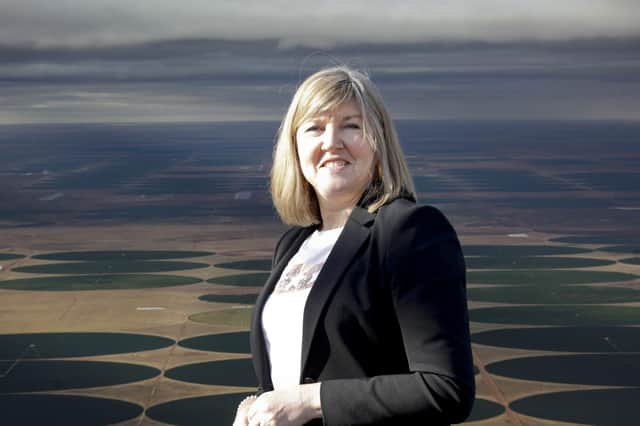Scottish Greens have more power than ever, so what will they do with it? – Gina Davidson


Her party appears to be on a roll, returning its highest number of MSPs to Holyrood after the elections – eight all told – and now has one of its own in the seat of parliamentary power, deciding on chamber business and who gets to speak in debates and when.
Of course, Ms Johnstone will have to divest herself of party membership and be impartial in her new role, but the very fact that a Scottish Green was approved to be PO is a major step for a party which was once very much on the fringes of Scottish politics, until proportional representation voting systems began to allow them a foothold in councils and Holyrood.
Advertisement
Hide AdAdvertisement
Hide AdQuite how she will carry out her new role is yet to be seen, but the mathematics of her appointment will leave the SNP feeling far more secure.
Any votes of no confidence in the government, say for instance over its handling of this year’s school exams – if the Greens were inclined to back such a vote – would see the Parliament evenly divided at 64-64, the casting vote in her hands.
Convention might suggest the PO should vote with the status quo, but there is no actual rule to enforce such a tradition, and the Greens have not been keen on bringing down government ministers. Indeed they ultimately supported John Swinney in a no-confidence vote over last year’s exam chaos, believing they had wrought a change of policy from him, although this year’s debacle might suggest otherwise.
And it’s that kind of action which has seen the Greens consistently criticised by opposition parties, who believe they are in thrall to the SNP government; a belief which stems from the party’s continual backing of SNP budgets, despite cuts to local government – something the Greens have campaigned against.
The Greens themselves, however, would say their yearly negotiations since 2016 reduced those cuts, and they point to successes like free travel for the under-22s and “critical” targets in the Climate Act which aims to reduce Scotland’s emissions by 75 per cent by 2030 as wins for their more consensual approach.
While the party has not quite returned as many MSPs as it had hoped – it is furious over the Independent Green Voice party on the regional list which it believes scooped up thousands of its votes – it still believes that with its now seven MSPs, it will have greater influence in Holyrood than ever before.
Its priorities will be on poverty and the UN climate summit, Cop26, and any demands made of the minority SNP government will be focused on those major issues – although the party is also likely to bring pressure to bear on the reform of the Gender Recognition Act.
Yet, it’s unlikely the SNP will allow the Greens any real elbow room when it comes to such a world event like Cop26 – it will want to ensure it is its government ministers who are the face of the event.
Advertisement
Hide AdAdvertisement
Hide AdAfter years of being bit players in Holyrood, the Green group has slowly found its voice. Now Scotland will see if it is really able to use it.
A message from the Editor:
Thank you for reading this article. We're more reliant on your support than ever as the shift in consumer habits brought about by Coronavirus impacts our advertisers.
If you haven't already, please consider supporting our trusted, fact-checked journalism by taking out a digital subscription.
Comments
Want to join the conversation? Please or to comment on this article.
